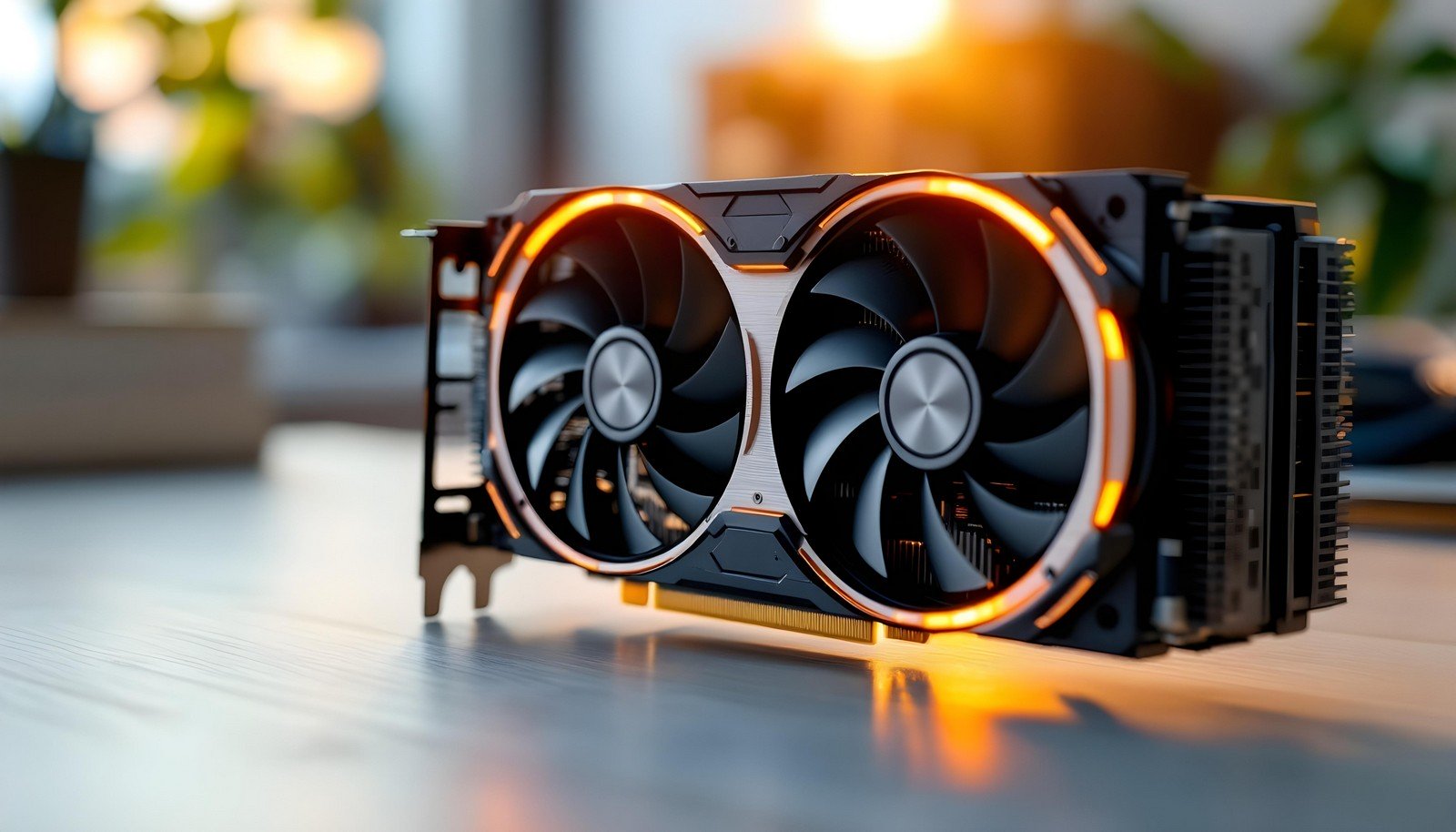GPU Cooler

Quick Navigation:
- GPU Cooler Definition
- GPU Cooler Explained Easy
- GPU Cooler Origin
- GPU Cooler Etymology
- GPU Cooler Usage Trends
- GPU Cooler Usage
- GPU Cooler Examples in Context
- GPU Cooler FAQ
- GPU Cooler Related Words
GPU Cooler Definition
A GPU cooler is a cooling solution designed specifically for graphics processing units (GPUs) to prevent overheating during operation. It typically consists of heat sinks, fans, thermal compounds, and sometimes liquid cooling systems. These components work together to dissipate the heat generated by the GPU while running demanding applications, ensuring stability, optimal performance, and longevity.
GPU Cooler Explained Easy
Think of a GPU as the engine in a race car—it gets super hot when working hard. A GPU cooler is like the car's radiator. It keeps the engine (your GPU) cool so it doesn't overheat and stop working.
GPU Cooler Origin
The concept of GPU cooling emerged alongside the evolution of dedicated graphics cards in the late 1990s. As GPUs became more powerful and required higher energy, cooling solutions advanced to match their thermal demands.
GPU Cooler Etymology
The term "GPU cooler" combines "GPU" (Graphics Processing Unit) and "cooler," which refers to a device or system that reduces heat.
GPU Cooler Usage Trends
With the rise of high-performance gaming, cryptocurrency mining, and professional workloads like 3D rendering, GPU coolers have seen a surge in demand. Users increasingly seek advanced solutions such as water cooling or hybrid cooling systems for quieter, more efficient thermal management.
GPU Cooler Usage
- Formal/Technical Tagging:
- Computer Hardware
- Thermal Management
- Cooling Solutions - Typical Collocations:
- "air-cooled GPU"
- "water-cooled graphics card"
- "GPU thermal paste"
- "GPU cooler upgrade"
GPU Cooler Examples in Context
- High-end gaming rigs often come with custom GPU cooling systems to maintain stable temperatures during intense gameplay.
- Overclocking enthusiasts rely on advanced GPU coolers to push their hardware to its limits.
- Liquid cooling systems are increasingly popular for GPUs in cryptocurrency mining rigs, as they provide efficient heat dissipation.
GPU Cooler FAQ
- What is a GPU cooler?
A device or system designed to manage and reduce heat generated by a graphics card. - Why do GPUs need cooling?
To prevent overheating, which can lead to thermal throttling or permanent hardware damage. - What types of GPU coolers exist?
Air cooling, liquid cooling, and hybrid cooling solutions. - Can I replace my GPU cooler?
Yes, but ensure compatibility with your GPU model. - What is thermal throttling?
A safety mechanism where the GPU reduces its performance to avoid overheating. - How do liquid GPU coolers work?
They use liquid to absorb heat, which is then dissipated through a radiator. - Are aftermarket GPU coolers worth it?
For overclocking or quiet performance, aftermarket coolers can be a good investment. - What maintenance does a GPU cooler need?
Regular cleaning and reapplication of thermal paste every 2-3 years. - Do all GPUs come with coolers?
Most GPUs have a built-in cooler, but some high-performance setups may benefit from custom cooling solutions. - Can a GPU cooler reduce noise?
Yes, especially liquid coolers, which often run quieter than air coolers.
GPU Cooler Related Words
- Categories/Topics:
- Computer Cooling
- PC Gaming
- Performance Optimization
Did you know?
The first GPU cooler designs were simple heat sinks, but modern GPU coolers include RGB lighting and advanced liquid cooling systems, combining aesthetics with function for gaming enthusiasts.
PicDictionary.com is an online dictionary in pictures. If you have questions or suggestions, please reach out to us on WhatsApp or Twitter.Authors | Arjun Vishnu | @ArjunAndVishnu

I am Vishnu. I like AI, Linux, Single Board Computers, and Cloud Computing. I create the web & video content, and I also write for popular websites.
My younger brother, Arjun handles image & video editing. Together, we run a YouTube Channel that's focused on reviewing gadgets and explaining technology.



Comments powered by CComment